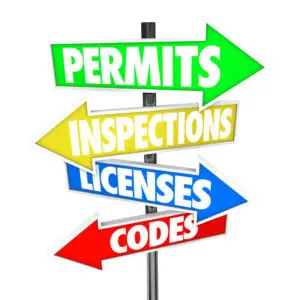How to Start a Business: All the Vital Steps When Setting up a Company
How to start a business
The actions one needs to take when considering how to start a business in the United States are not as complicated as many people think. It may take tremendous effort to get a business up and running but the process of putting yourself in a position to operate a business is not that hard.
This article will take you through what you need to know about how to start a business in the United States. But why do you need a company in the first place? Can’t you just do business in your own name?
Why Incorporate a Business?
When you incorporate a business, you effectively separate the business operation from yourself and give it its own life. The business becomes a separate entity or person in the eyes of the law. Why is this important?
The following are some of the main advantages of incorporation:
- Since a corporation is a distinct legal person, its liabilities do not transfer to you as an owner. This will make it much easier to protect your personal assets in case your business gets sued
- Companies generally have a lower effective tax rate than individuals. Also, several expenses are deductible from gross income thereby reducing taxable income
- When a business is incorporated, transfer of ownership or part-ownership is very easy
Business Structures Available to You
Someone looking for information on how to start a business should pay attention to the recommended business structures.In the United States, you can choose one of the following business structures:
- A Partnership
A partnership is a business that has two or more owners whose share in the partnership is documented in a partnership document. Where the partnership document does not state the owners’ share in the business, it is assumed that they have an equal share in the business.
Members of a general partnership are individually liable for the debts of the partnership. Where investors are not involved in the day-to-day running of the business, it is always a good idea to form a limited partnership. A limited liability usually protects the assets of the investor(s). Nonetheless, even in such a scenario, there must be at least one partner with unlimited liability.
- Limited Liability Company
A Limited Liability Company (LLC) provides their owners with the liability protection you’d expect from a corporation while also giving them the flexibility of the kind you’d find in a partnership. An LLC must have at least two designated members.
While an LLC is recognized as a separate entity under the law, it does not pay taxes in its name. The owners (members) pay taxes on their share of taxable income directly.
- Corporation
Corporations are legal entities separate from natural persons. This structure makes it possible for shareholders to avoid personal liability when things don’t work out. A corporation is essentially treated as a “person” in the eyes of the law and it has the rights and bears the obligations of a person. Corporations file and pay taxes. When corporations issue dividends, shareholders report the dividends as income and must pay applicable taxes on that income.
Owners of a corporation are called shareholders or stockholders. A corporation has unlimited life and death of a shareholder does not lead to its dissolution.
- An S Corporation
Since a corporation pays its own taxes and shareholders also end up paying taxes on the dividend they receive, it results in double taxation. To avoid this scenario, you can operate under an S Corporation. With an S Corporation, you will be paying taxes just once. You will still enjoy limited liability but it will not be as extensive as that enjoyed by a shareholder of a corporation.
Step by Step Guidance on How to Start a Business
Below are the major steps you need to take as you set up your company:
1. Consider Legalities
Most people don’t bother to consult with an attorney before they set up a company. This is not the right way to go about it. You really should consider seeing an attorney to consult with on your tax and personal liability. Your attorney may also be familiar with local, state, or federal laws and regulations that you can use to your advantage to increase your chances of success.
2. Decide on the Kind of Company You Want to Form
Ideally, you want to operate under an LLC, corporation, or an S Corporation. The three offer different levels of personal liability and tax friendliness but they are all generally better than sole proprietorships. If you’ve been paying attention, you should now be able to appreciate the importance of being in a good position tax-wise and liability-wise.
3. Choose a Company Name
Your company name doesn’t have to be the name you use for your business. You shouldn’t worry about branding at this stage. You can easily change 
4. Get a Designated Agent
All the correspondences from lawyers, the state, and regulatory bodies will have to go through someone. This someone will be your designated agent. The name of the designated agent will have to be submitted as you register your company with the state.
5. Get an Address
When registering a company in any state, you will be required to have an office address in that particular state. This does not mean that you have to get an office space before you start doing business. All you need to do is get an address in that state.
6. Appoint at Least One Director
Most states require that a company have at least one director. The director can be a resident of any state and doesn’t have to have residency in the hosting state. Companies, while they are legal persons, can’t be directors. A director must be a natural person.
7. Define the Rules of Engagement
Some states will not require you to have bylaws but it is still a good idea to have them written down. It is very likely that you will have to present your bylaws when registering a C-Corp or an S-Corp.
Bylaws memorialize business structures and the various roles and responsibilities stakeholders will have. The states that do not have bylaws as a legal requirement include Alaska, California, Colorado, Louisiana, Kansas, Minnesota, Michigan, Ohio, Nevada, North Dakota, Utah, Rhode Island, and Wisconsin.
8. Create and Submit Articles of Incorporation
Articles of incorporation refer to the set of documents you will hand over to the registering body when incorporating your company. Articles of incorporation can also be referred to as articles of association or corporate chatter. Usually, people are asked to provide:
- The company’s name
- Name of the individual creating the corporation
- The purpose of the company
- Details of the registered agent
- Types of shares to be issued
- The company address
- Names of company directors
Once you have your articles of incorporation ready, it is time to file them. You can do this online in some states. Otherwise, you have to go to the state office and do the filing in person. Most states will require you to pay a certain fee to file the documents.
9. Get an Employee Identification Number (EIN)
The IRS assigns a unique number for the purposes of identification to every business with operations in the United States. You can get the number by visiting IRS’ website and making an application.
10. Get a Business Bank Account
You don’t want to be using your normal personal account to handle company money. That would be very messy from an accounting standpoint. It may also get you in trouble with the IRS in case you get audited. Not even the smallest business transactions should be funneled through a personal bank account. You want to be professional from the word go and follow all the common sense accounting practices.
With an EIN and a business name, you have all the information you need to open a bank account. You can open an account with a normal bank or a local credit union.
11. Get the Necessary Permits and Licenses
Depending on the kind of business you plan to run, you will need various permits and licenses from the state, city, and/or local authority. You can use 
How to Start a Business the Easy Way
You now know how to start a business. We have covered enough ground in this article to fully appreciate the fact that corporations are legal persons with unique rights and obligations. You should therefore not take anything for granted when incorporating your company. You should not ignore any law or regulation be it a federal, state, or local law or regulation.
Ultimately, you don’t have to do everything yourself. There are professionals such as accountants and lawyers who can help you. If you can’t afford the services of a professional, you can make use of a service like Legal Zoom.
Legal Zoom has helped over a million businesses get started on their journey. Yours could be the next one. They will help you step by step on your journey. Further, they will assemble all the necessary documents and file them for you. When it’s all said and done, you will get a fully completed corporation package the next time you check your mail.
Build your future
Start making good money choices today so you can have the tomorrow you dream about. Make it happen!

